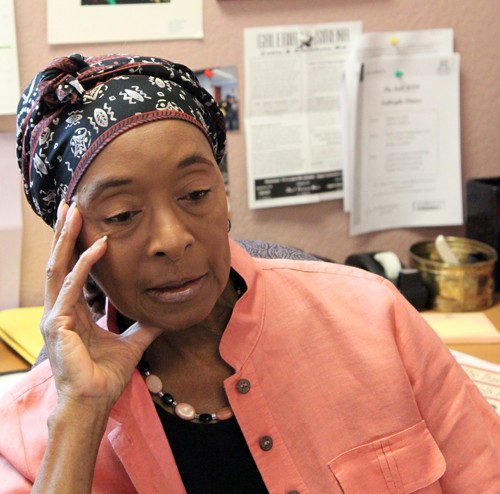If you know a mother, have a mother or are a mother this class is for you.
One of the main objectives of Motherhood in the African Diaspora is to re-define motherhood and get students to understand that it doesn’t have to biological, but rather that people can mother in many different ways.
Readings in the course are designed to follow the African slave trade, so students start in Africa, move to the Caribbean and finish in the United States.
No matter which book they’re reading, “”(they) always go back to the first book (they) read from Africa,”” said Geta LeSeur-Brown, professor of African American studies.
“”I also teach a lot of politics,”” LeSeur-Brown said, “”and use pictures and personal experiences as a mother.””
While literature is the primary tool for this class, LeSeur-Brown also shows many films.
“”I show some DVDs I’ve made of my trips there — documentaries and eye-witness accounts,”” LeSeur-Brown said.
The class is also full of discussions and students keep a semester-long journal.
“”It’s a collection of their ideas and personally stimulated responses as they move from book to book and country to country,”” LeSeur-Brown said.
The entries can be as long or short as students choose and the journals are collected once a month so that students have the opportunity to let the readings sink in, “”or so that they can catch up,”” LeSeur-Brown said.
“”They are a joy to me and I never know what I’ll find out,”” LeSeur-Brown said. “”They write about their own mothers or their experiences with mothering. I’ve seen them build confidence in themselves and each other which is always gratifying.””
Nothing ever goes outside of the classroom, and journals are graded for completion, not content.
Think this class is only for women? Think again.
“”The most amazing thing about this course is the amount of men, even jocks who take it,”” LeSeur-Brown said. “”Right now there are more men in this class than women.””
Nursing, media arts, women’s studies and communication students are most likely to take the class, but each semester it is an eclectic group of students, LeSeur-Brown said.
“”I needed to take a class like this, but I’m glad I took this one because it’s really interesting,”” said Resha Watts, a family studies senior. “”I really like the discussions and we actually learn history, so it’s a really good class.””









